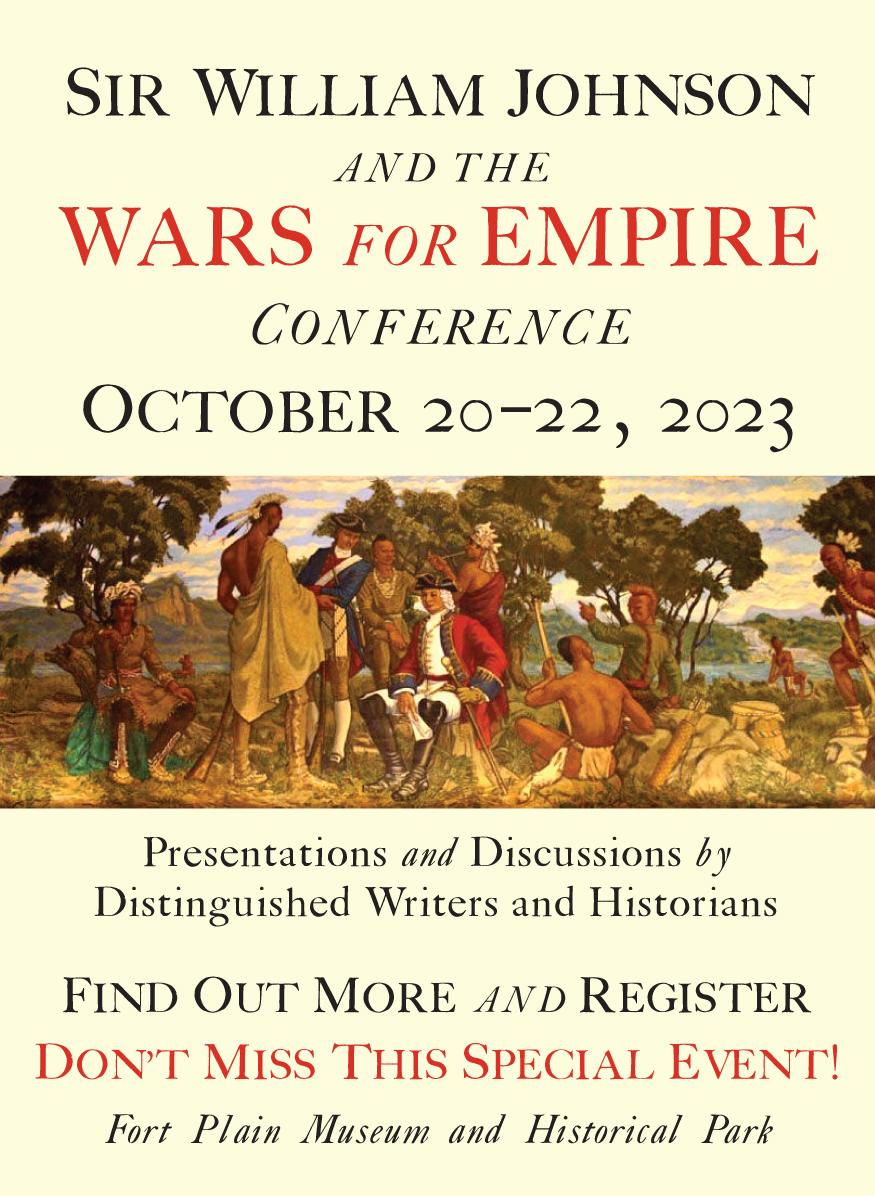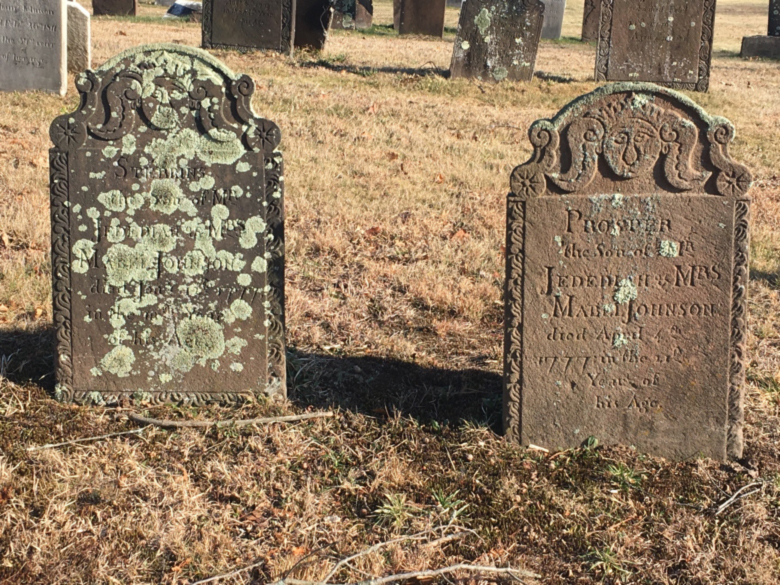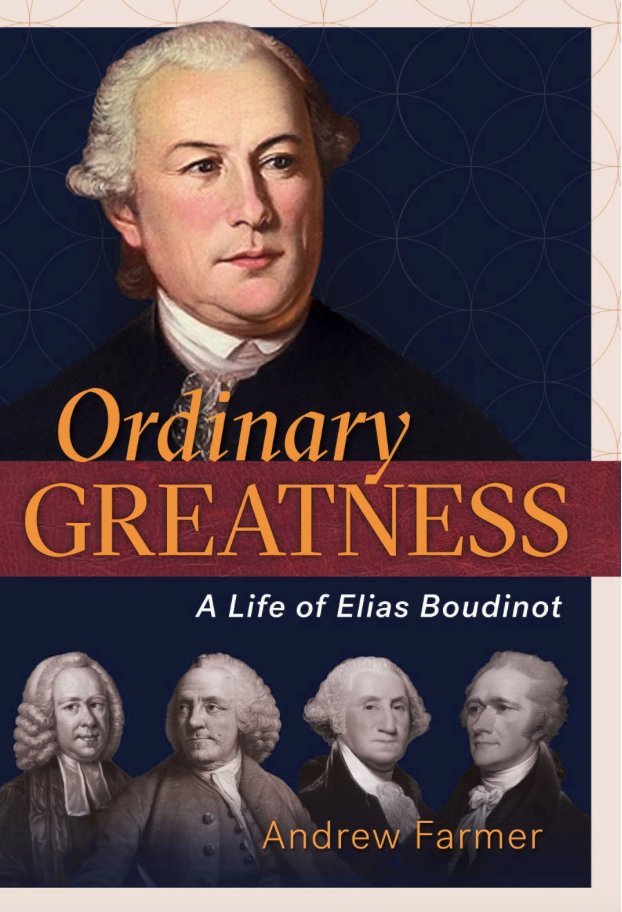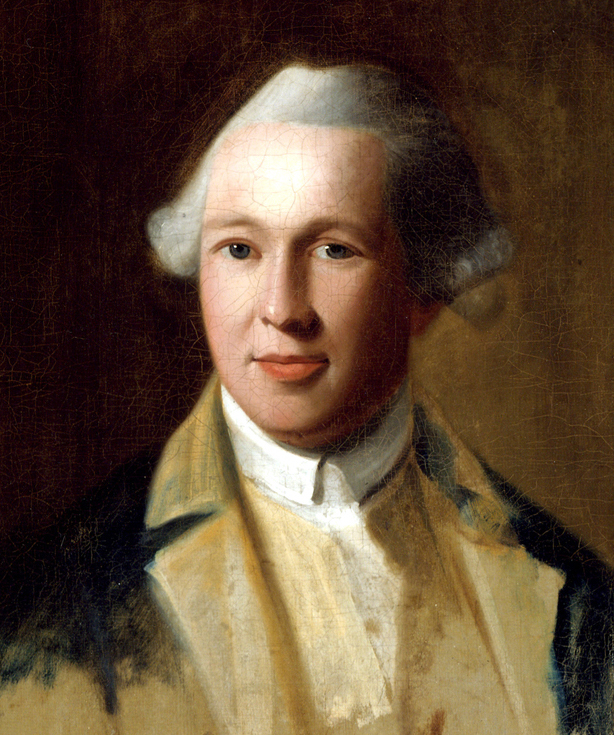Most professional and amateur historians of the American Revolutionary period are very aware of George Washington’s prowess as a military commander of the Continental Army, his role at the Constitutional Convention and his performance as the United States’ first chief executive. Unfortunately, many have overlooked Washington’s significant role, while he was still commander of the Continental Army, in shaping the debate over what would happen to the Continental government and the American people following the peace settlement with Great Britain.
In an era when most people lived a rural lifestyle and didn’t travel very much, Washington’s views about America’s future reflected his unique and formative experiences as a young man as well as his time in the Continental Army.[1] His adventures on the frontier as a surveyor, soldier serving alongside British troops in the French and Indian War, a land speculator and a businessman led to a man who saw the future United States’ destiny tied to developing lands in the west. His demanding tenure as the commander of the American war effort exposed him to the challenges of working for civilian authorities who were not empowered to govern. It was all of these seminal events that led him to compose his Circular to State Governments in early June 1783, a document that, in retrospect, is the seed of what would later evolve into the Constitution.
While James Madison, Alexander Hamilton, and John Jay get the lion’s share of the credit for the Federalist movement and its creation, it is Washington’s last Circular to State Governments that clearly articulates a new vision for the young nation. Written shortly after the preliminary Treaty of Paris was signed, it represents Washington’s longest public message (more than 4000 words) and showcases his adroit understanding of the challenges facing the new nation.
He was the head of the Continental Army for eight long years and during his tenure he had a front row seat to the all of the problems besetting the nation and its policymakers. With the end of the war in sight, Washington felt compelled to share his observations borne of unique experiences and wartime responsibilities, especially since he realized that he wouldn’t be commander of the American forces for that much longer. However, before delving into the contents of his stirring circular, it is important to examine his earlier correspondence, which will show that he was an early proponent of federalism.
During the conflict, Washington was a prolific writer as evidenced by the twenty two volumes (and counting) published by the University of Virginia Press over the years.[2] On a daily basis, Washington produced a plethora of written products, ranging from standing orders, updates to the Continental Congress, and personal letters. In his personal messages throughout the war, he shared his frustrations with the constraints of the Articles of Confederation and how it impacted his ability to command an army and how it in turn affected his overall strategy.
The Articles of Confederation and Perpetual Union were endorsed by the Continental Congress in late 1777 and it was readily apparent to Washington that the document would not enhance the coalition’s ability to wage war. The Articles of Confederation was a compromise document created in an atmosphere of competing regional interests and political disagreement and reflected the wishes of the delegates who couldn’t envision a post-war American state. More importantly, it showed a lack of integration between the military and political goals of the American effort. The end result was that Washington had to continually beg for supplies and manpower for his fledgling army because Congress didn’t have the power to levy taxes, draft soldiers, or order provisions. This theme of disappointment would be a narrative for much of his writing, both personal and official, during the American Revolution.
Three letters from the 1780-1783 timeframe exemplify his disappointment and frustration with the configuration of Congress and their inability to function under the Articles of Confederation. The first one was written in 1780, a couple of weeks after the Americans suffered their worst defeat of the Revolution at Charleston, and Washington is clearly dissatisfied with the inefficiency of the Second Continental Congress. “Certain I am unless Congress speaks in a more decisive tone; unless they are vested with powers by the several states competent to the great purposes of War … that our cause is lost. … I see one head gradually changing into thirteen.”[3]
Later on in the year he wrote to George Mason, a fellow Virginian, to once again lament his army’s lack of manpower and to express his wishes for Congress. “Our Civil government must likewise undergo a reform, ample powers must be lodged in Congress as the head of the Federal Union, adequate to all the purposes of War.”[4]
The third letter was written in 1783 to Major General Nathanael Greene, the commander of the Southern Department and a close confidant to Washington. Washington penned, “It remains only for the States to be Wise, and to establish their Independence on that Basis of inviolable efficacious Union, and firm Confederation, which may prevent their being made the Sport of European Policy; may Heaven give them Wisdom to adopt the Measures still necessary for this important Purpose.”[5] These three letters show that Washington was clearly concerned with the ineffectiveness of Congress and that he felt compelled to address those individuals who held the real power, the state governors and legislatures.
Washington started writing directly to the state governments early on in his tenure since he reasoned that the governors and the legislatures were the ones who decided whether his troops would be properly supplied or manned. However, in 1780, “… Washington went on the offensive, claiming that the lack of support for the Continental Army was a direct consequence of the failure of the Continental Congress to impose its will.”[6]
During his time in command, Washington had written eleven identical circulars to governors of the states and another thirty to those of a particular region or state. The tone of these circulars was often negative and clearly reflects Washington’s frustration at the states’ lack of support for his troops as it pertained to manning, ammunition, pay, or other critical resources.[7]
A circular from the headquarters in Ramapaugh in 1780 captures his irritation. “The present Crisis is by far the most important and delicate that this Country has ever experienced, and it pains me in the extreme that we are so backward in all our measures.”[8] He writes in another circular later on in the year, “I am religiously persuaded that the duration of the War, and the greatest part of the misfortunes & perplexities we have hitherto experienced, are chiefly to be attributed to the system of temporary inlistments.”[9]
In 1781 as the French forces aligned themselves with the American effort, Washington implored the states to honor their agreement to provide manpower. “… Our Allies in this Country expect and depend upon being supported by us in the attempt which we are about to make, and those in Europe will be astonished should we neglect the favourable opportunity which is now offered.”[10] Despite these major deficiencies identified by Washington, the American force was able to prevail over the British forces at Yorktown but the problems facing Washington and his men were just beginning.
Following the major victory in Virginia, it took another two years before the peace treaty was signed. During that timeframe, Washington realized that the United States wasn’t postured for long-term success, either politically or militarily. The structure of the Articles of Confederation was seriously flawed and he let the president of Congress know his concerns, “I am decided in my opinion, that if the powers of Congress are not enlarged, and made competent to all general purposes, that the Blood which has been spilt, the expense that has been incurred, and the distress that have been felt, will avail nothing; and that the band, already too weak, which hold us together, will soon be broken; when anarchy and confusion must prevail.”[11]
Washington also was concerned about the disposition of the army. In March 1783, his leadership at Newburgh had quelled a potential officer insurrection but he realized that the situation was still very tenuous. He continued write to the state leaders about his concerns pertaining to the back pay problems for his troops and how it could hurt ongoing negotiations with British. “… I have procured from the Pay Master Genl, the inclosed minutes of what he judges necessary to obtain from the States, … that you will be pleased to give directions that the earliest attention may be given forward, without the least delay, to Mr. Pierce, the Pay Master Genl, whatever Information, Accounts or papers, … which may be thought proper from your State to effect the settlement purposed.”[12]
When Washington composed his last circular, it was one of his last opportunities to address the state leaders and the American people in an official capacity. Written just two months after he had announced the cessation of hostilities, he knew that he was going to be resigning his commission and return to Mount Vernon and he felt compelled to offer up his vision of what a future American republic government should look like. What makes this document particularly bold is Washington’s willingness to support a union of the states under a federal government, a stance that wasn’t extremely popular at the time. His vision of an expansive federal government was in line with his experiences in the war and he realized that if America was to be a successful entity, it would have to be as a republic. However, the creation of a republic isn’t the only interesting theme that emerges from the circular.
For a man who wasn’t overtly religious, Washington’s use of religious language throughout the text is interesting. Throughout his life he believed that “some supernatural force … moved actively in the affairs of men.”[13] He thought that “since national and political liberty would establish international peace and happiness, fighting the American Revolution was worship to the ‘Great Governor of the Universe’ who would protect and reward his servants.”[14]
He starts and ends his circular with religious language meant to acknowledge a supreme being’s role in the American victory as well as to appeal to the many religious Americans who would read his message. He uses religious language (Heaven and Providence multiple times, and “cup of blessing”) in the first four paragraphs to reinforce the belief that America had been given a divine opportunity. He then links the religious language with his observation that America has a chance to construct a society according to political principles. “For, according to the system of Policy the States shall adopt at this moment, they will stand or fall, and by their confirmation or lapse; it is yet to be decided, whether this Revolution must ultimately be considered as a blessing or a curse; a blessing or curse, not to the present age alone, for with our fate will the destiny of unborn Millions be involved.”[15] He is advocating that this opportunity, given to the American people by a higher power, must not be squandered.
Washington then transitions into four things which he feels are “essential … to the existence of the United States as an Independent Power …” They are (using his capitalization):
1) An indissoluble Union of the States under one Federal Head
2) A Sacred regard to Public Justice
3) The adoption of a proper Peace Establishment
4) The prevalence of that pacific and friendly Disposition, among the People of the United States, which induce them to forget their local prejudices and policies, to make those
concessions which are requisite to the general prosperity, and in some instances, to sacrifice their individual advantages to the interest of the Community.[16]
He continued, “These are the Pillars on which the glorious Fabrick of our Independency and National Character must be supported.”[17] Washington is making an auspicious and daring argument that the colonies must put aside their differences and forge a new nation capable of defending itself as well as being able to take advantage of the vast resources in North America.
Washington reinforces these themes in his last paragraph of the circular when he writes a prayer for the diverse state leadership. His prayer mirrors a verse taken from the book of Micah (6:8) in the Old Testament: “He hath shewed thee, O man, what is good; and what doth the LORD require of thee, but to do justly, and to love mercy, and to walk humbly with thy God?”[18] However, Washington paraphrases this portion of scripture to reinforce his plan for an American government that wields federal control:
“I now make it my earnest prayer, that God would have you, and the State over which you preside, in his holy protection, that he would incline the hearts of the citizens to cultivate a spirit of subordination and obedience to Government, to entertain a brotherly affection and love of one another, for their fellow Citizens of the United States at large, and particularly for their brethern who have served in the Field, and finally, that he would most graciously be pleased to dispose us all, to do Justice, to love mercy, and to demean ourselves that Charity, humility, a pacific temper of mind, which were the Characteristicks of the Divine Author of our blessed religion, without an humble imitation of whose example in these things, we can never hope to be a happy Nation.”[19]
Historians over the years have debated how well the circular’s message was received by the public. Acclaimed Washington biographer Douglas S. Freeman wrote that response to the message was one of acclaim, especially in New England. The Boston Post wrote, “… that the appeal was ‘dictated by the immediate spirit of God'” while another correspondent wrote, “When I read General Washington’s circular letter I imagined myself in the presence of the great General of the twelve United States of Israel.”[20] However, the Mount Vernon website debates this claim and says that Washington’s address had little measurable impact.[21] What cannot be debated is that the message received a wide readership in newspapers and later it was excerpted in countless school textbooks.[22]
Many documents and speeches from the Founding Fathers have impacted the development of America but Washington’s Circular to the State Governments is one of the more meaningful to come out of the era. Washington’s prose and vision conveyed a path forward for a nation trying to come to grips with winning a war against the British Empire. It was the first circular from Washington following the announcement of cessation of hostilities and it was a critical, first salvo in the exchange of ideas between those men that would determine America’s future course. Most importantly, it would become a significant text for those men that would later advocate for the Federalist cause.
[1] James Lemon, “Colonial America in the Eighteenth Century”, accessed July 1, 2015, (http://cascourses.uoregon.edu/geog471/wp-content/uploads/2010/01/Lemon.pdf), 125.
[2] University of Virginia. The Papers of George Washington. http://gwpapers.virginia.edu/editions/letterpress/revolutionary-war-series/volume-22-1-aug-21-oct-1779/ (accessed June 30, 2015).
[3] George Washington to Joseph Jones, May 31, 1780, in George Washington: Writings, ed. John H. Rhodehamel (New York: Literary Classics of the United States, Inc, 1997), 378.
[4] Washington to George Mason, October 22, 1780, in George Washington: Writings, 402.
[5] Washington to Nathanael Greene, March 31, 1783, in George Washington: Writings, 504.
[6] Joseph Ellis. The Quartet: Orchestrating the Second American Revolution, 1783-1789. (New York: Alfred A. Knopf, 2015), 18.
[7] Douglas S. Freeman, George Washington: A Biography. Vol. 5: Victory With The Help Of France (New York: Charles Scribner’s Sons, 1952), 444.
[8] Washington to The States, June 30, 1780, Founder’s Online National Archives, accessed June 29, 2015, http://founders.archives.gov/documents/Washington/99-01-02-02307).
[9] Washington Circular to State Governments, October 18, 1780, in George Washington: Writings, 393-94.
[10] Washington to The States, May 24, 1781, Founder’s Online, National Archives, accessed June 29, 2015, (http://founders.archives.gov/documents/Washington/99-01-02-05851).
[11] Washington to Benjamin Harrison, March 4, 1783, James C. Fitzpatrick, ed, Writings of George Washington, Volume 26 (Washington, D.C, Government Printing Office, 1931), 184-85.
[12] Washington to The States, April 14, 1783, Founders Online, National Archives accessed June 29, 2015, (http://founders.archives.gov/documents/Washington/99-01-02-11052).
[13] James T. Flexner, George Washington in The American Revolution (1775-1783) (Boston: Little, Brown & Company, 1968), 543.
[14] Ibid, 543.
[15] Washington Circular to State Governments, June 8, 1783, in George Washington: Writings, 518.
[16] Ibid, 518-519.
[17] Ibid, 519.
[18] King James Bible, Biblehub, accessed June 29, 2015 (http://biblehub.com/micah/6-8.htm).
[19] Washington Circular to State Governments, June 8, 1783, in George Washington: Writings, 526.
[20] Freeman. George Washington: A Biography, 446.
[21] Willam F. Fowler, Jr., “Circular Letter to the States”, George Washington’s Mount Vernon, accessed July 6, 2015, (www.mountvernon.org/research-collections/digital-encyclopedia/article/circular-letter-to-the-states/).
[22] Ron Chernow, Washington: A Life (New York: The Penguin Press, 2010), 443.














5 Comments
Professor Johnson, thank you for this well-researched, well-written and thoughtful piece.
Could General Washington have an interest in a stronger Federal Government because of his land speculation in “the West?” If the new Republic was no longer bound by the treaty line of 1763, would this not benefit the General financially as well?
Those western lands were ceded to the new country in the Treaty of Paris in 1783.
Formation of the Northwest Territory (including much land that had been claimed by Virginia) occurred under the Articles of Confederation.
Dr. Park,
Thank you for your feedback. I think that any conversation about Washington’s thoughts on Federal government must include a discussion of westward expansion. From his youngest days as a public land surveyor, and later as a private land speculator, Washington understood that the future of the colonies would be tied to developing western lands. This belief only grew during the Revolution and is one critical component of Washington’s vision for the new nation.
Yes, true, and on the East Coast some Boston merchants had land investments in Maine but the Crown was restricting their ability to harvest tall, mature trees. Many of these merchants put their chips in with the city’s Patriots.
Yes, that happened at the beginning of the Revolution.
Washington wrote this letter in 1783 when the question was no longer “Will Britain rule us?” but “How shall we rule ourselves?”